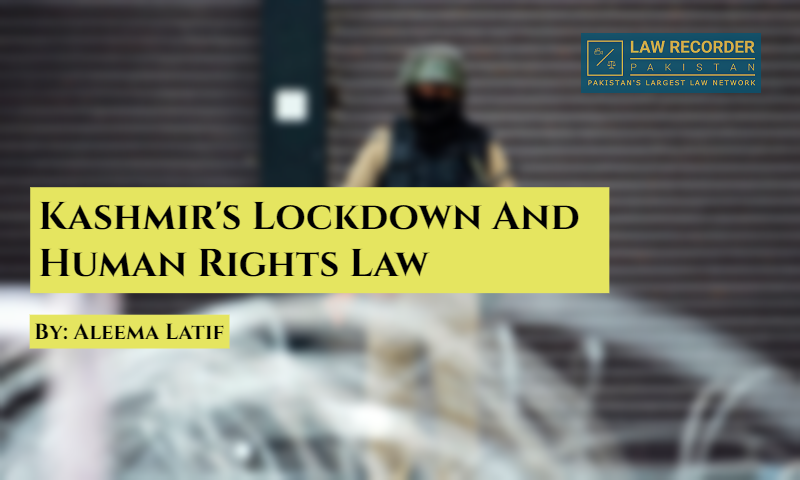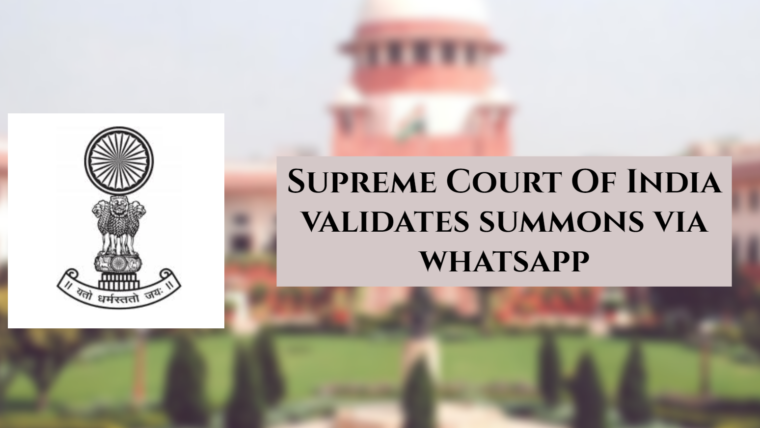Kashmir’s Lockdown And Human Rights Law
Most legal structure is based on the pretense to protect. A system of rules, manifest into laws, where the safety and interests of all individuals can be upheld. In Indian Occupied Kashmir, the world is presented with a nuance alien to the basis of legal structure; a law, which strips individuals of the ability to safeguard their own interests and formulates an environment for them which is inherently unsafe.
Next August would mark a year into the reenactment of Article 370. A legal nuance that has stripped the Kashmiri collective of their voice and autonomous functioning. While Kashmir has been a political hotspot between Pakistan and India, this move by the Indian parliament isn’t one that arises out of a backlash to Pakistan, rather, mere disregard for the voice of the Kashmiri populous
Weeks into the lockdown, the Indian government proceeded to arbitrarily arrest politicians, political activists and opposition leaders, in fear of a backlash. The Public security law, under which over 4000 individuals from various disciplines such as law and journalism as well as state officials have been detained, can be seen as severely problematic. The act defines the basis of detention as ‘ “acting in any manner prejudicial to the security of the State”, leaving several legal loopholes for authorities to misuse their power. When a law, so broad in its essence grants the state the ultimate jurisdiction to withhold rights, as imperative as the right to liberty, it can severely deepen the issue. Alongside this, the law denies this detention any judicial review or trial, which is inconsistent with international human rights law. The International Covenant on Civil and Political rights (ICCPR), to which India is a signatory, outlines the right to seek a lawyer and the importance of a legal basis for detention, as an imperative grant. While such concerns have been highlighted by habeas corpus petitions, they are quick to be dismissed by legal authorities in India and are an inconvenient remedy as they can only be filed in the High court.
The Indian government has confronted their fear of backlash on the populous by also restricting communication services in the region. Blocking phone lines and all internet services in August, the policy was revised by allowing 2G services in the region. The Indian court has repeatedly ruled in favor of accessing communication means as a fundamental right as well as the freedom of expression. However the hypocrisy in its reenactment in the case of Kashmir is painfully evident. With government controlled internet kiosks, allowing website browsing but not social media, this is a direct contradiction to their original stance. Restricting liberty in a disputed region seems to be deepened as a problem when that liberty extends to cyber space. Arguing against the internet as a ‘fundamental right’, India has again established itself a hypocrite in following policy as it is a party to the ICCPR, which endorses it as one.
These abuses are only a glimpse into the undercover violations that take place. With over a hundred thousand patrolling the region and continually labeling the people as ‘radical’, India has far crossed the boundaries of maintaining civil liberty. ‘Deradicalisation’ camps perpetuate the problem of liberty, especially in the case of minors, when the ability to not consent is conveniently overlooked by state authorities. Granting the state impunity when carrying out such measures is not only ethically questionable but severely deprecates the issue of human rights abuses in the region.
For a legal structure to perpetuate abuse is a clear contradiction to what it is supposed to be. The dark reality behind such radical policies are not only undemocratic but severely deprecating. Granting impunity to the state and putting many, innocent civilians at risk of abuse, is against all tenets of humanitarian law and ethical grounds. The question at hand isn’t about balancing civil liberty with maintaining state policy, It is one of granting autonomy and protection where it is rightfully required.
When it is understood that a state’s territorial integrity isn’t in the hands of another, it is unreasonable for an Indian to assume it isn’t in the case of Kashmir.
The views expressed in this article are those of the author and do not necessarily reflect the views of Law Recorder Pakistan.
By: Aleema Latif
Author is a student of A-Levels at Lahore Grammar School.






1 Comment
Aaqib Nawaz
An excellent piece of writing..